Ceiling heating and cooling
Ceiling heating is known for a very long time and it is one of the most natural heating system as well as sun heating. Today, with the advent of new technologies, it is widely used for heating and cooling of buildings.
Ceiling heating works on the radiant heat principle. In plasterboard ceiling is maintained the profile system which is all-around. A heating pipes are inserted into these profiles and are heated by 26 – 30°C heating water. The heating water heats steel profiles which radiates heat further into the neighborhood. The radiation does not primarily heat the air but all areas and objects in the room are heated. The heat is evenly distributed throughout the room and there are no different temperatures for the sub-floor and the ceiling even at the different places in the room.
The advantage of this heating system is the option of ceiling cooling. In this case the water at the temperature of 17°C flows to the pipes. Warm air goes up, cold water absorbs heat and sends it through the heat pump in reverse mode to the outside. The room is cooled down by approx. 6°C and a pleasant environment is created without thorough airflow as with air conditioning. Another important advantage is the humidity stability of the environment which does not change during cooling.
Ceiling heating advantages
Low operating costs
Thanks to lower heating water temperature about 25-30°C, which is less than at radiator heating.
Thermal comfort all year round
Switch the heat pump to cooling during summer and to heating during winter.
Suitable for allergy sufferers
Almost zero air movement and dust particles swirl.
Nenarušuje vzhled místnosti
Volná dispozice interiéru pro nejvhodnější umístění nábytku.
Montáž i na šikmé stropy
Instalace stropních profilů na rovné i šikmé stropy nejen pro půdní vestavby.
Prevence proti plísním
Stropní vytápění ohřívá i vlhké stěny v místnosti a působí tak proti plísním.
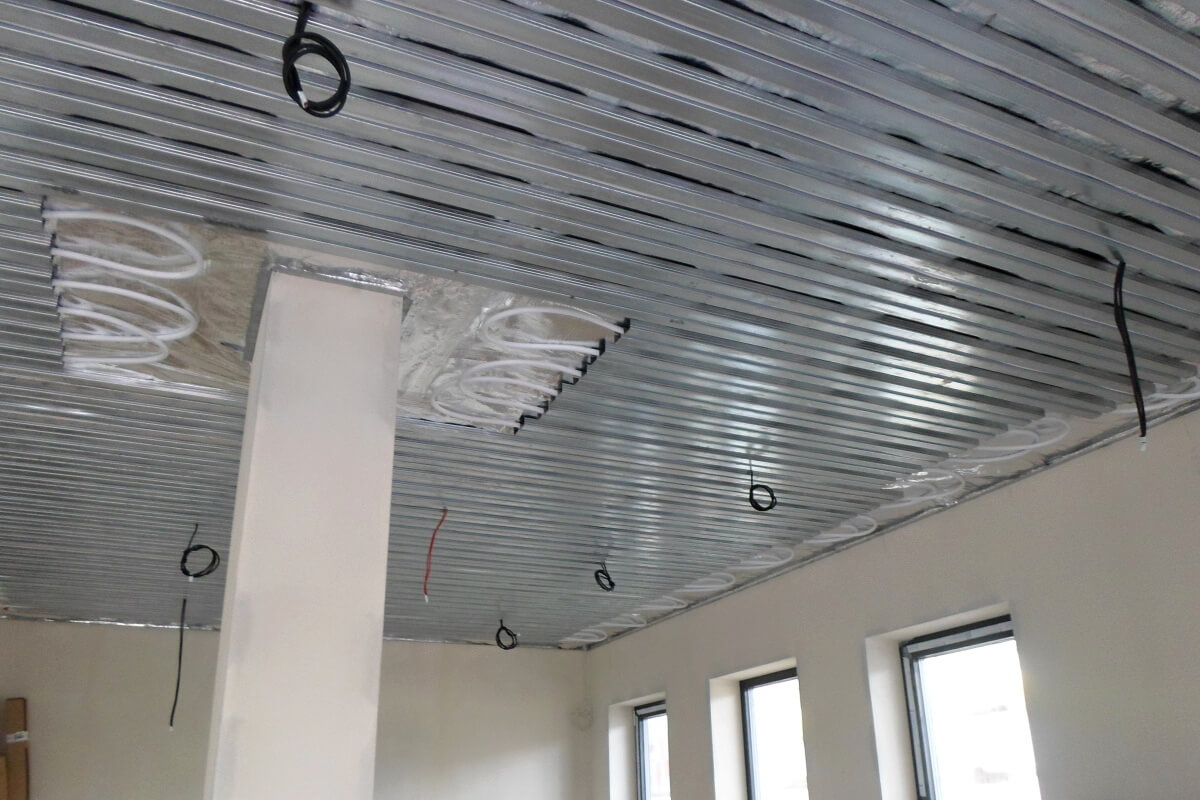
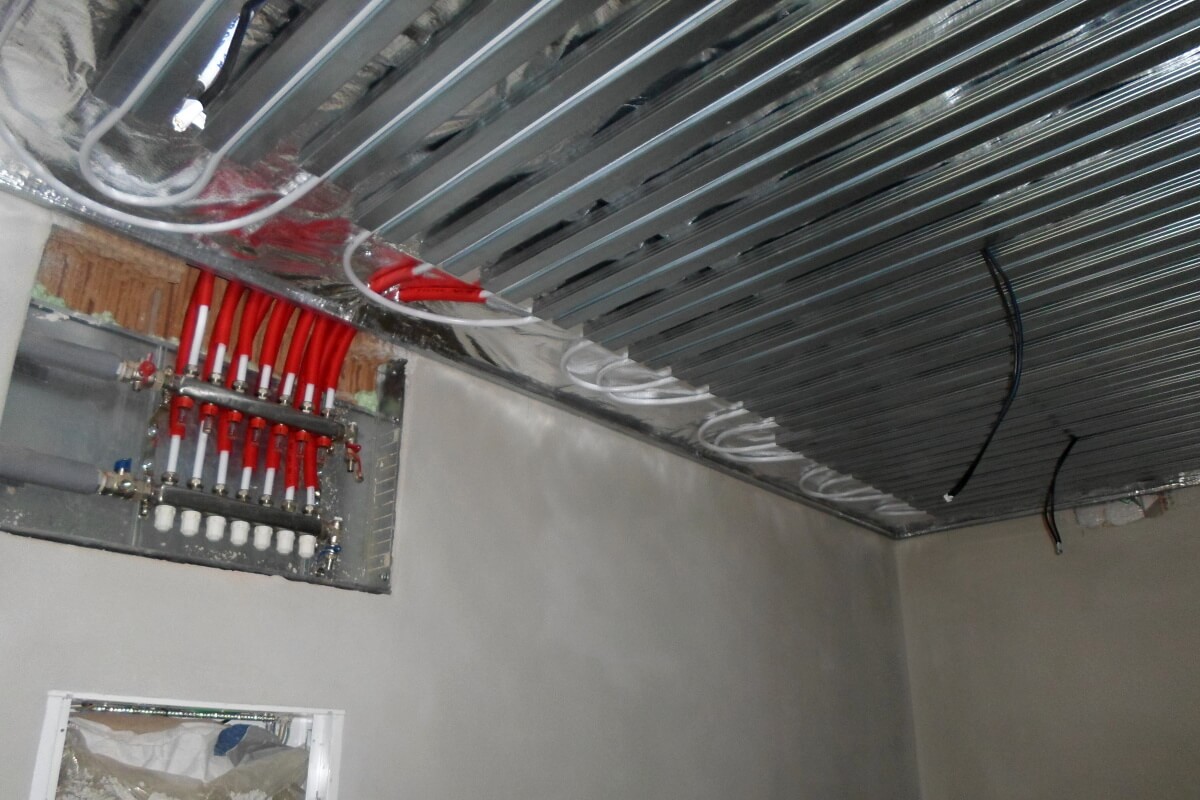
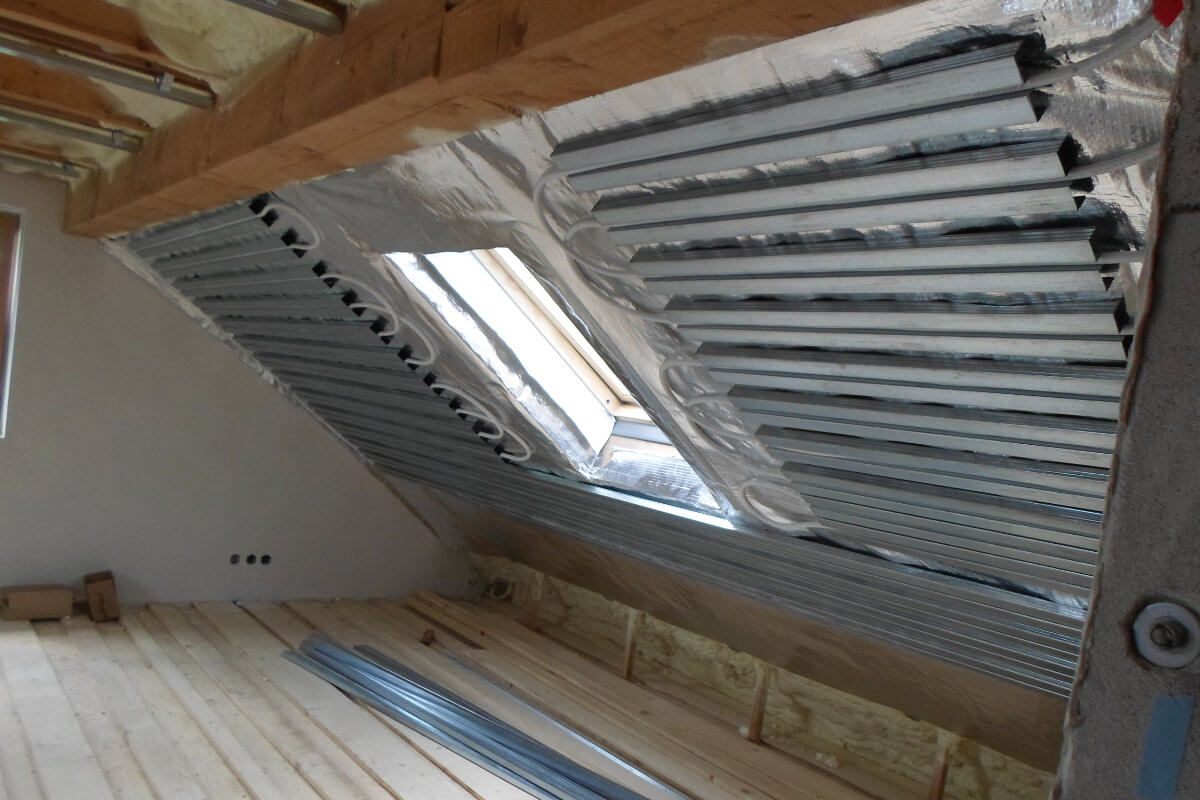
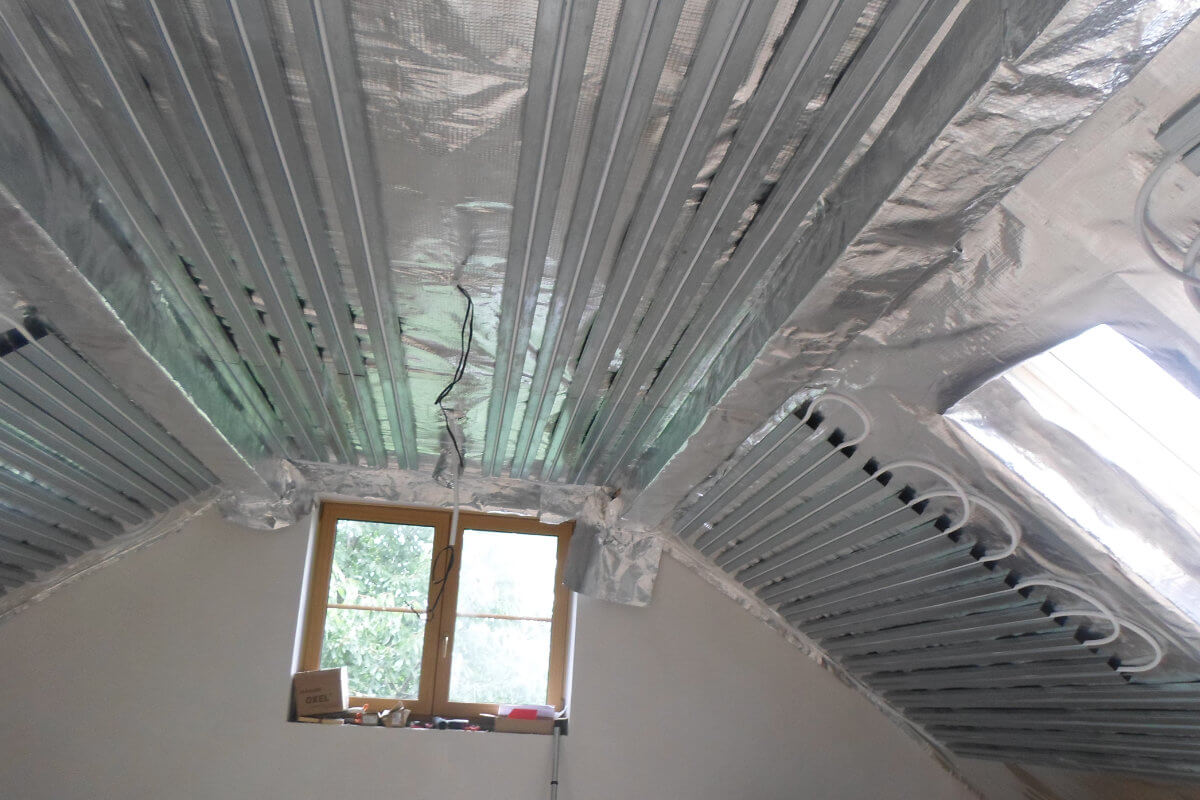
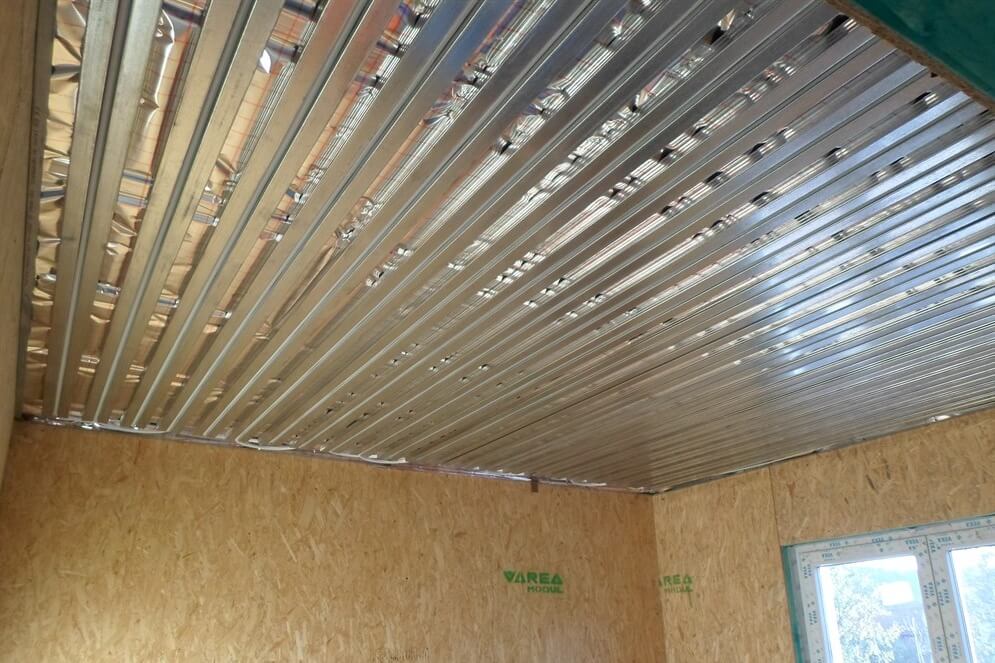
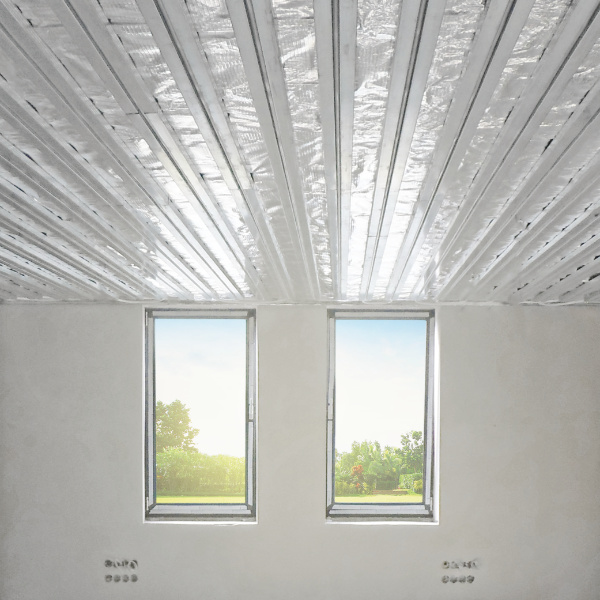
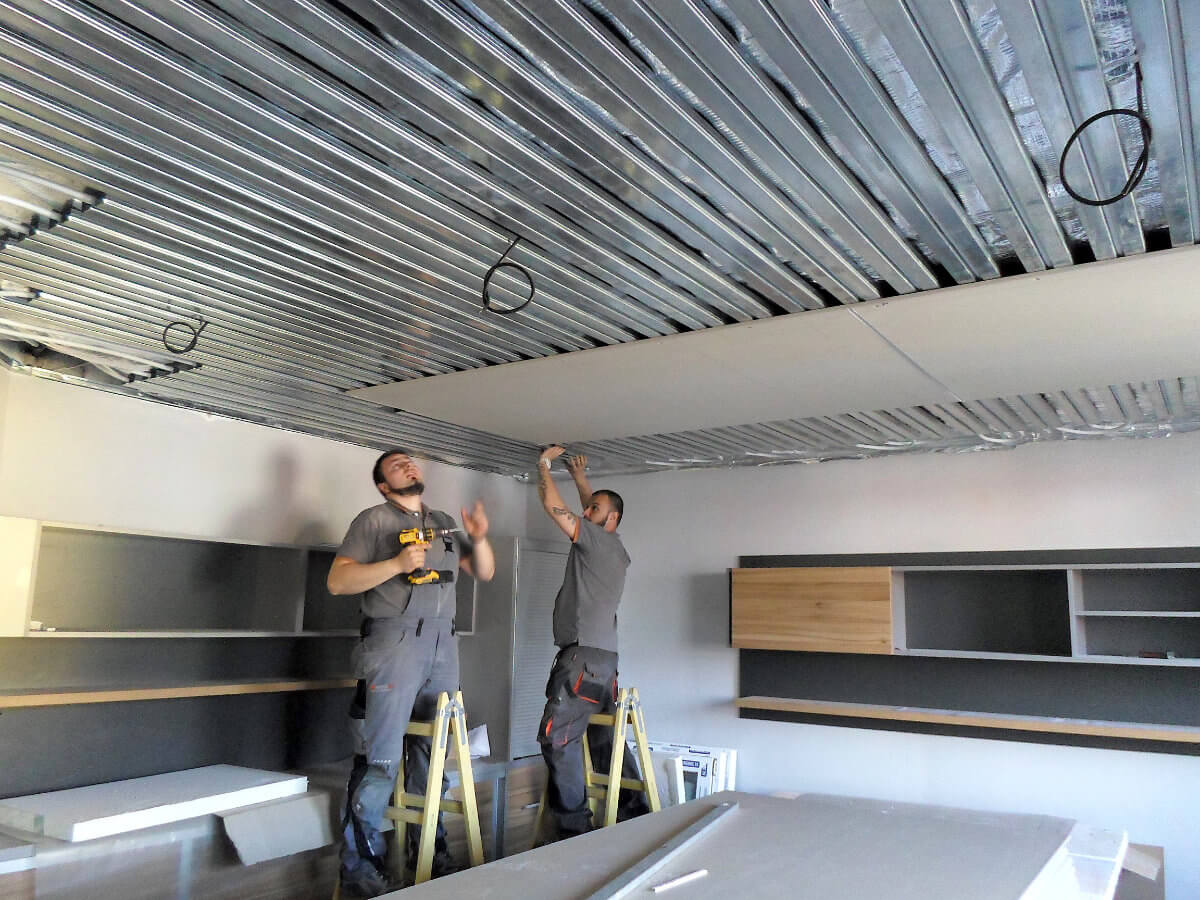
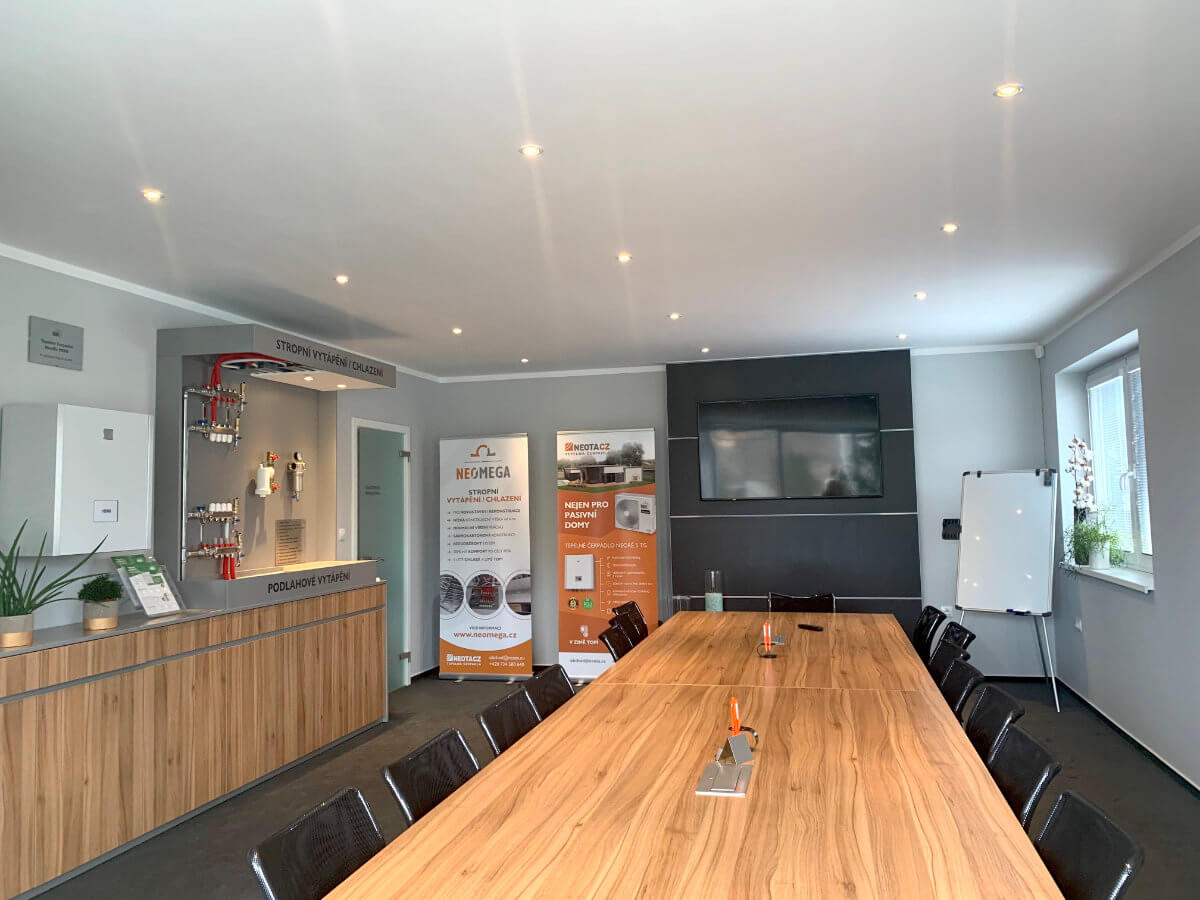
Princip stropního topení
It is a nationwide heat transfer to all objects in the room.
Heating pipe is inserted into a special plasterboard profile. Through this pipe flows water with temperature of 25-30°C.
Above the profiles we insert insulation layer and reflective foil. For the whole area of ceiling we mount classical plasterboard.
Water heats up steel profiles and those transfer the heat through plasterboards equally into room. The ceiling works the same way like infrared panel heater.
Difference of room air temperature and heating water temperature is so tiny, that no dust swirls.
Minimum ceiling construction
Minimum ceiling construction thickness could be 60mm but usually you should count with 120-150mm including insulation.
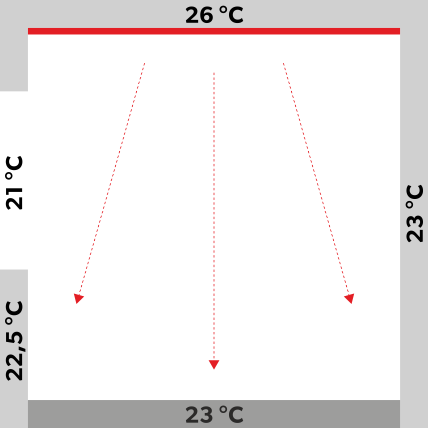
Ceiling cooling
Ceiling cooling works like ceiling heating. You do not have to cool rooms to a low temperature. It is enough to reduce the temperature only about a few degrees and a large cool ceiling area will provide the rest. The flow of energy is turning and all subjects including persons are cooled.
Ceiling cooling principle
You switch on cooling mode and set cooling water temperature.
All the objects in room are gradually cooled down.
Air flowing is minimal and therefore is convinient for alergy sufferers.
Ceiling cooling do not collect moisture from the room air, as in case of air conditioning.
The result is a very pleasant thermal comfort*.
Pozor na rosný bod
The higher the humidity in the room, the higher the dew point temperature. At a room temperature of 26 ° C and a humidity of 80%, the dew point is 22 ° C. So we set a water temperature of 23 ° C or more.
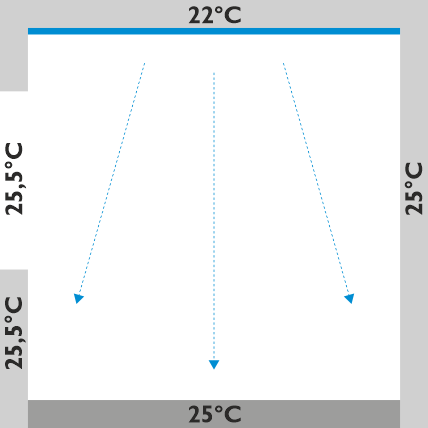
Dew point table
| Room temperature °C | ||||
| Rel. humidity % | 25 °C | 26 °C | 27 °C | 28 °C |
|---|---|---|---|---|
| 50 % | 13,8 °C | 14,7 °C | 15,6 °C | 16,5 °C |
| 60 % | 16,6 °C | 17,6 °C | 18,5 °C | 19,5 °C |
| 70 % | 19 °C | 20 °C | 21 °C | 22 °C |
| 80 % | 21,3 °C | 22,2 °C | 23,2 °C | 24,2 °C |
| 90 % | 23,2 °C | 24,2 °C | 25 °C | 26,2 °C |
The term Thermal Comfort we encounter has no unit, it is actually feeling. Achieving thermal comfort means that one ceases to perceive the surroundings; that he is neither hot nor cold, does not feel unpleasant draft or fast air flow, breathes well, does not dry his mucous membranes and does not perceive the influence of hot or cold objects or walls.

